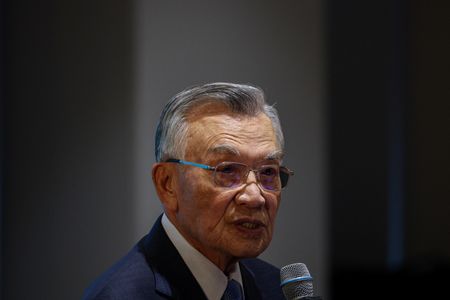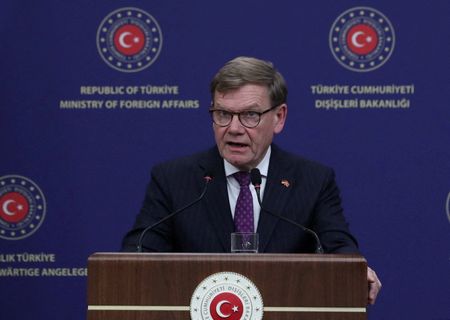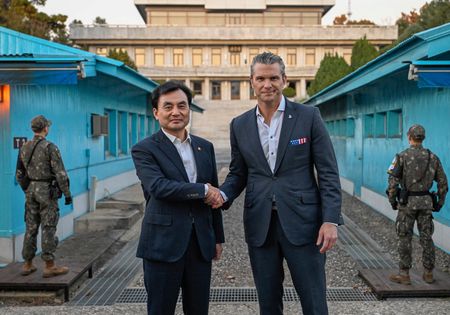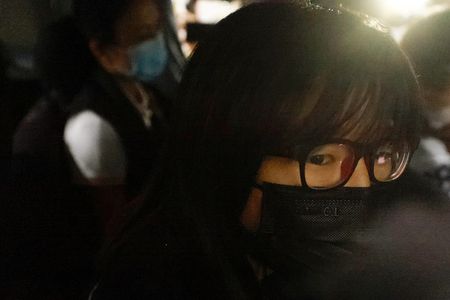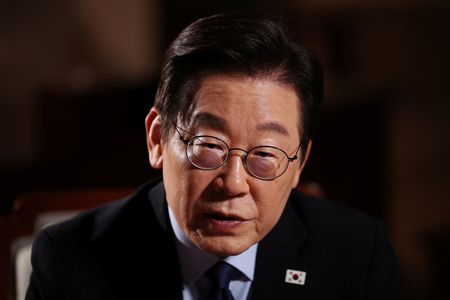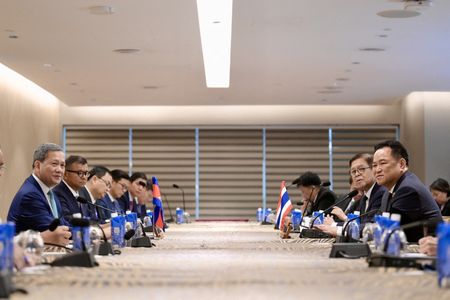TAIPEI (Reuters) -Taiwan’s representative to last weekend’s APEC summit rebuffed Chinese protests on Monday about his meeting with Japanese Prime Minister Sanae Takaichi while there, saying that it was “very normal” for him to meet leaders attending.
China said it had lodged a strong protest with Japan about the meeting on the sidelines of the summit in South Korea, after Takaichi had posted about it on her X account and referred to Taiwan’s representative Lin Hsin-i as a senior adviser to the presidential office.
Lin, a former economy minister, told reporters in Taipei that all the Asia Pacific Economic Cooperation (APEC) delegations took part on an equal footing and all the leaders and representatives talked to each other.
“There’s nothing strange about it. There were a lot of these kinds of interactions,” he said, when asked about China’s anger at the meeting with Takaichi. “We had lots of interactions and communications with lots of leaders. It’s a very normal thing.”
Japan, like most countries, has no formal ties with Chinese-claimed Taiwan, but is a strong unofficial ally.
APEC is one of the very few international gatherings Taiwan, which rejects Beijing’s claims over the island, takes part in, although its presidents do not attend.
Takaichi and Chinese President Xi Jinping agreed to pursue constructive and stable ties at their meeting at APEC on Friday.
Before taking office, Takaichi suggested Japan could form a “quasi-security alliance” with Taiwan, and said that any contingency there would constitute an emergency for Japan and its ally, the United States.
U.S. MEETINGS
APEC was also an opportunity for Taiwan to chat with U.S. officials, and Science Minister Wu Cheng-wen told the same news conference that he had talked with U.S. Secretary of State Marco Rubio and others from the U.S. delegation on how Taiwan can help build U.S. semiconductor capabilities.
While exactly replicating Taiwan’s science parks, where its chip manufacturing in concentrated, is not feasible, developing similar U.S. facilities is something Taiwan can help with, Wu said.
“This is Taiwan’s unique, proprietary model. With the support of the U.S. government, we also hope to rapidly expand this model in the United States,” he said.
TSMC, the world’s largest contract chipmaker, is already investing $165 billion in the United States to build semiconductors.
However, Taiwan is still in talks with the United States about the 20% tariff Washington has put on the island’s exports to the country.
(Reporting by Yimou Lee and Ben Blanchard; Editing by Kim Coghill and Raju Gopalakrishnan)

